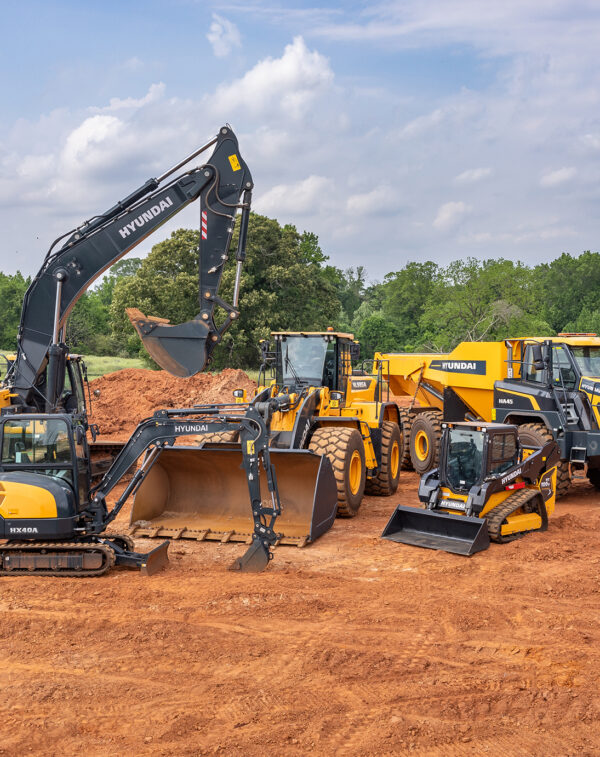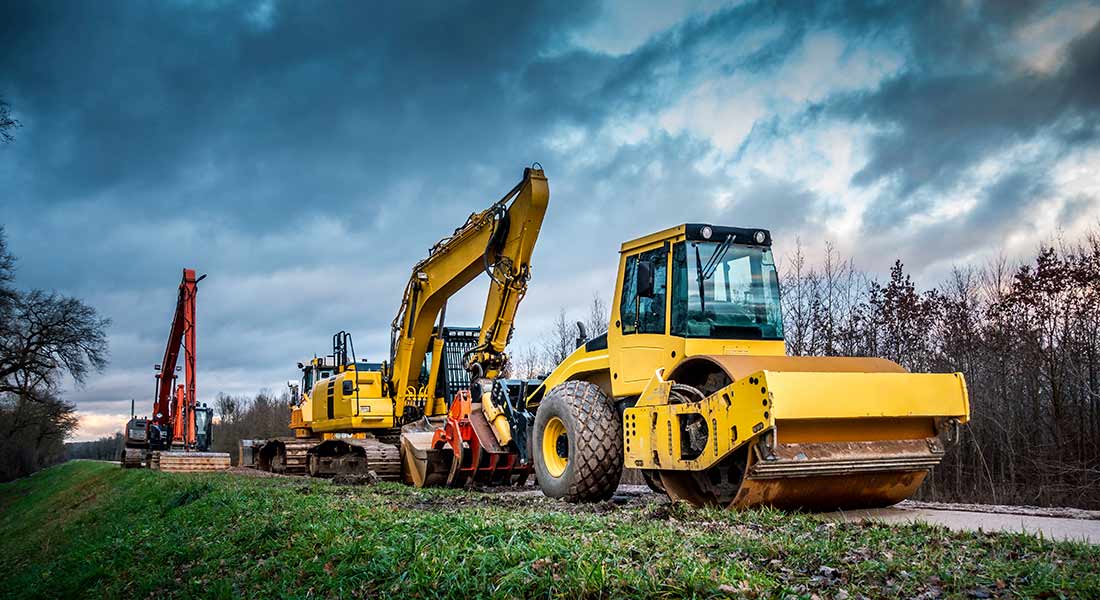Construction Equipment Rentals in Tuscaloosa AL: Everything You Required for Your Work Site
Construction Equipment Rentals in Tuscaloosa AL: Everything You Required for Your Work Site
Blog Article
Exploring the Financial Benefits of Leasing Building And Construction Tools Compared to Having It Long-Term
The choice between possessing and leasing building and construction tools is critical for economic management in the industry. Renting out deals instant price financial savings and functional flexibility, enabling business to assign sources much more efficiently. In contrast, ownership features considerable lasting economic dedications, consisting of maintenance and depreciation. As specialists weigh these options, the impact on capital, task timelines, and innovation accessibility ends up being increasingly significant. Comprehending these nuances is important, especially when thinking about exactly how they line up with specific job requirements and financial techniques. What factors should be focused on to make sure ideal decision-making in this complex landscape?

Price Contrast: Leasing Vs. Possessing
When examining the economic implications of owning versus renting out building and construction tools, an extensive cost contrast is crucial for making notified decisions. The choice in between having and renting out can dramatically influence a firm's lower line, and recognizing the linked costs is critical.
Renting out construction devices usually entails lower upfront prices, allowing companies to designate capital to various other functional requirements. Rental arrangements often include versatile terms, allowing business to accessibility advanced machinery without long-lasting commitments. This flexibility can be especially helpful for short-term projects or rising and fall work. However, rental costs can accumulate over time, possibly surpassing the expenditure of possession if tools is required for an extended duration.
Conversely, having building and construction equipment calls for a substantial initial investment, in addition to recurring prices such as insurance, depreciation, and financing. While possession can result in lasting cost savings, it likewise connects up funding and may not offer the very same level of flexibility as leasing. Additionally, owning equipment necessitates a dedication to its application, which might not always line up with project needs.
Eventually, the decision to own or rent out should be based upon an extensive evaluation of details task needs, monetary capability, and long-lasting calculated objectives.

Maintenance Responsibilities and expenses
The option in between possessing and renting out building tools not just entails financial considerations yet also encompasses continuous upkeep costs and obligations. Possessing devices requires a considerable dedication to its upkeep, which includes regular assessments, repairs, and prospective upgrades. These duties can quickly gather, bring about unanticipated prices that can stress a budget.
In comparison, when renting devices, maintenance is commonly the duty of the rental company. This arrangement enables contractors to stay clear of the monetary worry connected with deterioration, as well as the logistical challenges of scheduling repairs. Rental agreements commonly consist of provisions for maintenance, indicating that contractors can concentrate on finishing tasks as opposed to fretting about tools problem.
Furthermore, the varied variety of equipment readily available for rent allows companies to choose the most current designs with innovative technology, which can improve efficiency and performance - scissor lift rental in Tuscaloosa Al. By opting for services, businesses can stay clear of the long-lasting responsibility of equipment devaluation and the connected upkeep migraines. Inevitably, reviewing maintenance expenses and obligations is critical for making an educated decision concerning whether to lease or own building equipment, dramatically impacting general project costs and functional efficiency
Depreciation Effect On Ownership

A considerable element to consider in the decision to possess building tools is the impact of devaluation on overall possession costs. Depreciation stands for the decline in worth of the tools with time, influenced by aspects such as use, wear and tear, and developments in modern technology. As equipment ages, its market worth reduces, which can dramatically affect the proprietor's economic placement when it comes time to sell or trade the equipment.
For construction firms, this depreciation can convert to significant losses if the tools is not used to its maximum capacity or if it lapses. Owners should represent devaluation in their economic projections, which can lead to higher general expenses compared to renting. Additionally, the tax effects of devaluation can be complex; while it may provide some tax obligation benefits, these are typically offset by the reality of lowered resale value.
Ultimately, the burden of depreciation emphasizes the value of comprehending the long-lasting financial commitment included in having construction devices. Companies should thoroughly evaluate exactly how commonly they will certainly use the equipment and the prospective economic effect of depreciation to make an informed choice about ownership versus renting.
Financial Flexibility of Leasing
Renting out construction tools supplies significant economic adaptability, enabling firms to allocate resources extra efficiently. This adaptability is especially vital in an industry identified by fluctuating job needs and varying workloads. By choosing to rent out, companies can avoid the considerable resources expense needed for purchasing devices, maintaining capital for other operational needs.
In addition, renting out tools allows business to customize their equipment choices to details task demands without the long-term commitment related to ownership. This indicates that companies can quickly scale their equipment stock up or down based upon expected and existing job requirements. Subsequently, this adaptability minimizes the danger of over-investment in equipment that might end up being underutilized or outdated with time.
Another financial advantage of renting out is the possibility for tax obligation benefits. Rental payments are frequently taken into consideration overhead, enabling immediate tax deductions, unlike devaluation on owned devices, which is spread out view it over several years. scissor lift rental in Tuscaloosa Al. This immediate expense recognition can better boost a business's cash position
Long-Term Task Considerations
When examining the lasting requirements of a construction company, the decision in between possessing and leasing devices comes to be more intricate. For projects with extensive timelines, purchasing tools might seem advantageous due to the potential for lower overall costs.
The building and construction industry is developing rapidly, with brand-new tools offering enhanced effectiveness and safety and security features. This adaptability is especially beneficial for services that handle diverse jobs requiring different types of tools.
Additionally, economic stability plays a critical duty. Owning devices typically requires considerable capital expense and devaluation problems, while renting out enables more predictable budgeting and click here for more capital. Inevitably, the selection in between owning and renting should be aligned with the strategic purposes of the building and construction company, taking into consideration both anticipated and present job demands.
Conclusion
Finally, renting out building and construction equipment uses substantial economic benefits over lasting ownership. The reduced in advance prices, elimination of upkeep duties, and avoidance of depreciation add to enhanced capital and monetary flexibility. scissor lift rental in Tuscaloosa Al. In addition, rental settlements serve as instant tax obligation reductions, additionally profiting professionals. Inevitably, the decision to lease rather than very own aligns with the vibrant nature of building tasks, permitting for versatility and accessibility to the most recent equipment without the monetary worries associated with ownership.
As devices ages, its market worth diminishes, which can dramatically influence the proprietor's my blog financial placement when it comes time to market or trade the devices.
Leasing construction devices supplies substantial economic adaptability, enabling business to allot resources more effectively.Furthermore, leasing devices allows firms to tailor their tools choices to details project requirements without the long-lasting commitment associated with possession.In final thought, renting out building devices offers significant financial advantages over long-term ownership. Eventually, the decision to rent out rather than own aligns with the dynamic nature of construction jobs, allowing for versatility and access to the most recent devices without the monetary worries linked with possession.
Report this page